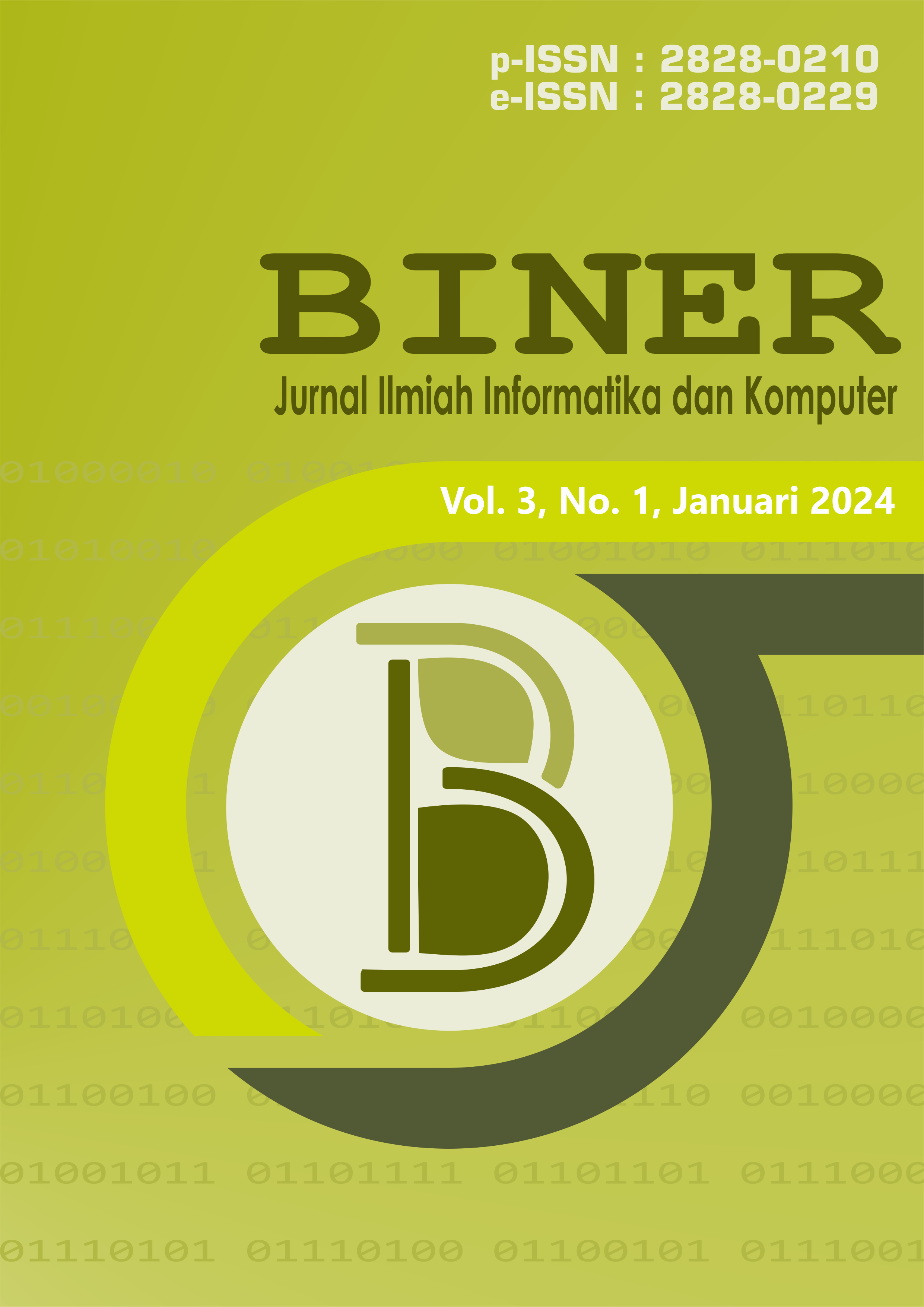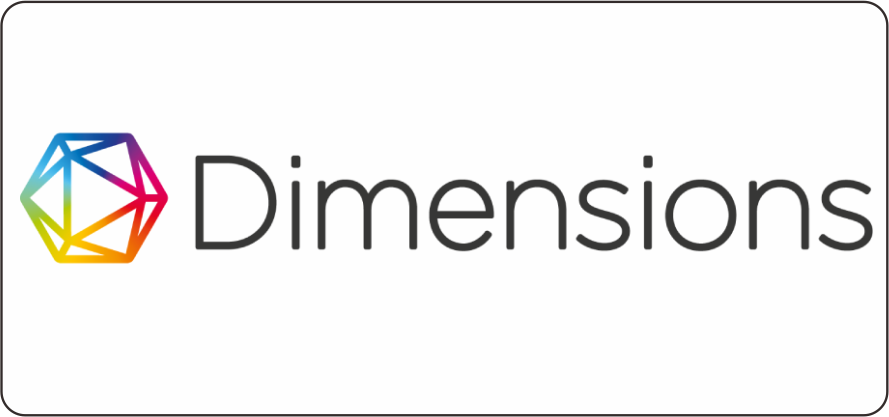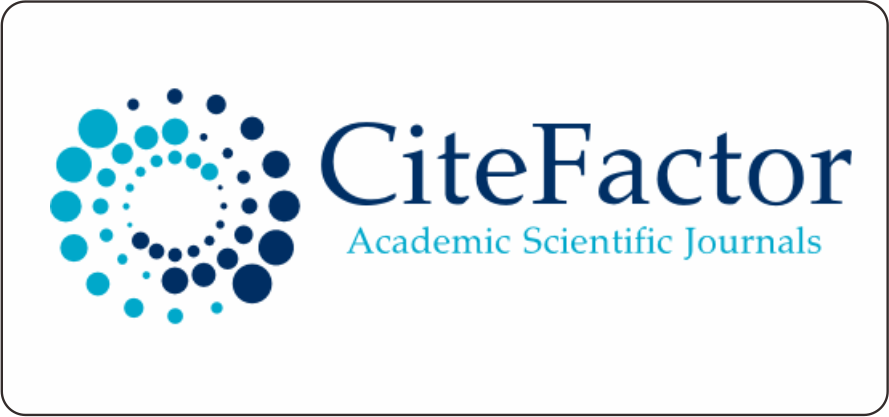SISTEM INFORMASI AGENDA RAPAT BERBASIS WEB DI PROGRAM STUDI SISTEM INFORMASI UNIVERSITAS ISLAM NAHDLATUL ULAMA JEPARA
DOI:
https://doi.org/10.32699/biner.v3i1.6335Keywords:
Sistem Informasi, Agenda Rapat, WebAbstract
Penelitian ini bertujuan untuk mengembangkan Sistem Informasi Agenda Rapat Berbasis Web di Program Studi Sistem Informasi UNISNU Jepara. Masalah yang dihadapi adalah pengelolaan agenda rapat yang efisien di lingkungan pendidikan tinggi. Metode yang digunakan dalam penelitian ini adalah metode pengembangan sistem, yang melibatkan analisis kebutuhan, perancangan, implementasi prototipe, dan evaluasi. Hasil penelitian menunjukkan bahwa implementasi sistem secara signifikan meningkatkan efisiensi manajemen rapat di program studi tersebut. Admin dapat mengelola agenda, notulen, absensi, ruangan, peserta, dan pengguna melalui antarmuka yang intuitif. Pengguna juga menyatakan kepuasan terhadap fitur-fitur yang disediakan. Penelitian ini memberikan kontribusi inovatif dalam domain sistem informasi agenda rapat berbasis web dan membuka peluang untuk pengembangan lebih lanjut dan studi lanjutan di lingkungan akademis.
Downloads
References
[2] I. A. Nugraha, F. Pradana, and A. Arwan, “Pengembangan Sistem Manajemen Notulensi dan Dokumentasi Rapat Berbasis Web ( Studi Kasus : Jurusan Teknik Informatika Fakultas Ilmu Komputer Universitas Brawijaya ),” vol. 4, no. 4, pp. 1273–1280, 2020.
[3] S. Tinggi, A. Islam, and D. Krempyang, “Manajemen Rapat, Teori dan Aplikasinya dalam Pesantren 1 M. Yusuf 1,” vol. 10, 2020.
[4] A. Budiman, M. N. Rahman, and I. R. Raul, “Efektivitas Selenium dalam Pengujian Fungsionalitas Aplikasi Kasir Berbasis Web dengan Metode Blackbox,” vol. 01, no. 01, pp. 1–10, 2023.
[5] J. Veri, N. Pratama, and Z. Rosha, “Jurnal Ekobistek,” vol. 11, no. 3, pp. 7–12, 2022, doi: 10.35134/ekobistek.v11i4.424.
[6] M. S. Jailani, “Teknik Pengumpulan Data Dan Instrumen Penelitian Ilmiah Pendidikan Pada Pendekatan Kualitatif dan Kuantitatif,” vol. 1, pp. 1–9, 2023.
[7] F. Putraga and A. Bahri, “Perancangan E-Kuisioner menggunakan CodeIgniter dan React-Js sebagai Tools Pendukung Penelitian,” vol. 3, no. September, pp. 337–347, 2019.
[8] M. G. An and A. Kurniawan, “Sistem Informasi Manajemen Berbasis Key Performance Indicator ( KPI ) dalam Mengukur Kinerja Guru,” vol. 3, no. 1, pp. 8–18, 2022.
[9] E. Of, “P ENGEMBANGAN A PLIKASI P ENJADWALAN R APAT,” vol. 15, no. 1, pp. 35–46, 2019.
[10] S. V. Widyakusuma, “PERTAMBANGAN DAN ENERGI DI INDONESIA This research aims to find out how mining and energy companies in Indonesia engage,” vol. 11, pp. 1–15, 2022.
[11] M. Azmi, A. P. Kharisma, and M. A. Akbar, “Evaluasi User Experience Aplikasi Mobile Pemesanan Makanan Online dengan Metode Design Thinking ( Studi Kasus GrabFood ),” vol. 3, no. 8, pp. 7963–7972, 2019.
[12] P. Issn and M. I. Amar, “DESA DENGAN METODE PROFILE MATCHING,” vol. 6, no. 1, pp. 31–36, 2020.
Downloads
Published
Issue
Section
License

This work is licensed under a Creative Commons Attribution-ShareAlike 4.0 International License.
An author who publishes in this Journal agrees to the following terms:
- Author retains the copyright and grants the journal the right of first publication of the work simultaneously licensed under the Creative Commons Attribution-ShareAlike 4.0 License that allows others to share the work with an acknowledgement of the work's authorship and initial publication in this journal
- Author is able to enter into separate, additional contractual arrangements for the non-exclusive distribution of the journal's published version of the work (e.g., post it to an institutional repository or publish it in a book) with the acknowledgement of its initial publication in this journal.
- Author is permitted and encouraged to post his/her work online (e.g., in institutional repositories or on their website) prior to and during the submission process, as it can lead to productive exchanges, as well as earlier and greater citation of the published work (See The Effect of Open Access).















